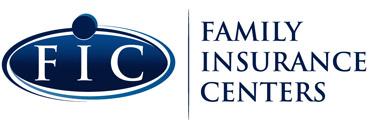New Car, New Insurance? Common Questions for Car Buyers
 If you plan to buy a new car, will your new car cost more to insure? Before you make a major auto upgrade, take a look at the questions you need to know about insuring a new car.
If you plan to buy a new car, will your new car cost more to insure? Before you make a major auto upgrade, take a look at the questions you need to know about insuring a new car.
Do You Need a New Policy?
Even though you already have a policy for your old car, you still need to add the new one to your insurance plan. You won’t be able to find a blanket family insurance plan that covers every auto in your household. Instead, your insurer will cover each car individually. While you may pay one lump sum price monthly, biannually, or annually, the total price includes each car’s premiums.
Talk to your insurance agent about a new policy before you finalize the car deal. This will give you a better idea of what you can expect to pay. If you have concerns about a gap in coverage, in most cases the existing policy will provide temporary coverage.
Temporary coverage is not a long-term insurance solution. Your new car still needs its own permanent policy. But this is an ideal option if you purchase your car over the weekend or on a holiday.
Will Your Car Insurance Premium Increase?
Perhaps it’s your first brand-new car and you’re sure your insurance rates will increase. While this may happen, it isn’t always the case. Insurance rates aren’t based solely on the age of your car. Instead, insurers use a complex formula to calculate what you owe.
Along with the year of your new car, the insurance company may also use the make, model, safety features, and security features to calculate the policy price. Along with these factors, theft statistics also factor into the premium’s price. The more cars of a specific make and model are stolen per year, the higher the cost is to ensure the car.
Along with the car itself, the driver brings additional factors that may affect insurance rates. These can include the driver’s record (recent accidents or infractions), age, and location.
Will the Cost to Repair or Replace the Car Raise the Price?
The cost to replace components of your car may also influence your auto insurance premiums. This factor isn’t always proportional to the cost of the car. A more expensive car may have less expensive parts to replace or have parts that are commonly available, costing less in the long run.
How Can You Save on Insurance Costs?
Is your brand-new car high on the theft list or does it have hard-to-find parts? Will these factors increase your rates in comparison to your old low-theft, easy-to-find-parts car? The answer is most likely yes. But that doesn’t mean you can’t save money on your insurance.
Car insurers often offer discounts for specific features (both car and driver bonuses) or for other reasons. But don’t assume one insurance company’s discounts apply to every company. An advertised discount you saw on TV only applies to the specific company that offered it.
Talk to your agent before you purchase a policy to learn more about the specific discounts you qualify for based on your age, driving record, other insured vehicles/types of insurance, and the new car itself.
You can also discuss the possibility of adjusting your deductible. A higher deductible typically lowers the premium price. Before you change the deductible in an attempt to save, consider what will happen if your car is in an accident. A high deductible may cost you more in repairs.
Can You Switch Insurance Companies for Your New Car?
What happens if you’re not happy with your insurance policy? Whether you don’t like the coverage, the premium, or the service, you have the freedom to make a change.
Do you need a new auto insurance policy? Contact Family Insurance Centers for more information.
